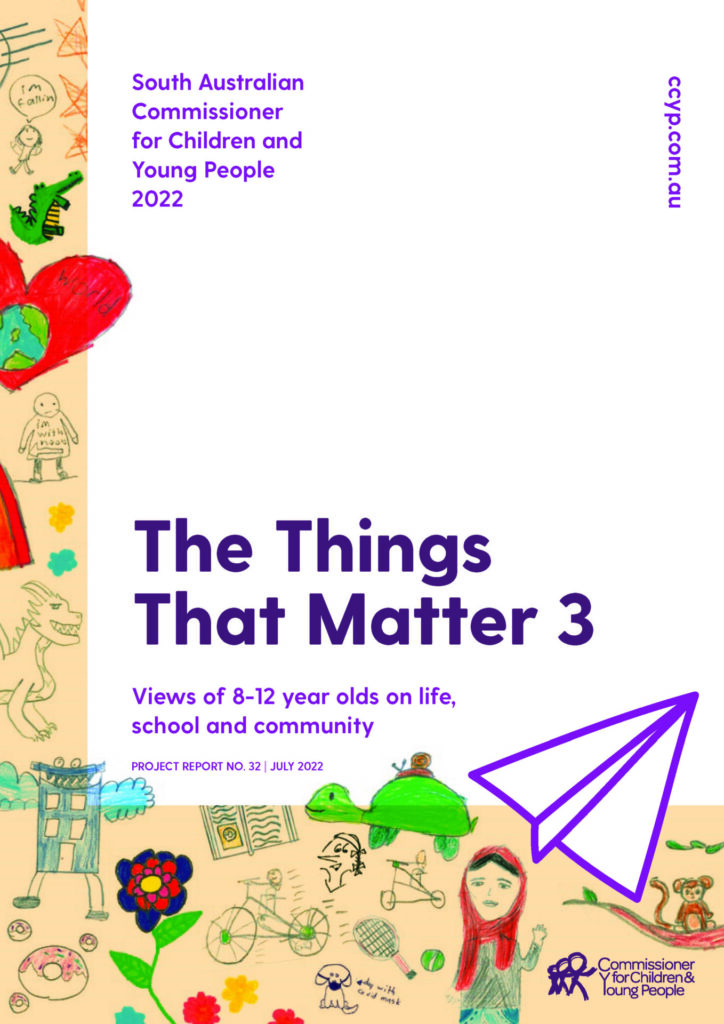This is the third report in the Things That Matter series, presenting the responses from more than 13,868 South Australian children who completed their postcards during Terms 3 and 4 of the 2021 school year.
Postcards were received from 289 schools across South Australia coming from metropolitan, regional, rural, and remote communities.
Compared to 2020, this is an increase of over 5,400 (38%). The number of participating schools also increased from 209 to 289 – 80 more than participated in 2020. This brings the number of South Australian schools who have participated in Postcards since its inception in 2019 to a total of 435 primary schools.
This report captures what more than 13,800 children in this age group have to say about what they’re good at, what they care about, what they want grownups to know, and what they think would make the world a better place for everyone.
Climate change, natural disasters, mental health, and a global pandemic, are just some of the complex issues that permeate the lives of children attending our primary schools today. While new and emerging trends have always shaped children’s lives, the differences between the responses on the 2021 postcards compared to those in 2019 and 2020 reveal just how fast the pace of technological, cultural, political and environmental change is in the twenty-first century.
While this report highlights differences in their perspectives, experiences, and ideas for change across gender, age, and geographic lines, it is also clear that children across the state share many of the same experiences and aspirations as their peers, particularly in relation to a lack of opportunities to be heard.
If we fail to listen to what children in this age group share with us, we risk alienating them at a time in their lives when they are seeking reassurance that they can trust the adults who are in their lives. By listening, empathising, and validating their experiences, we build enduring relationships that are grounded in trust and hope for the future, reinforcing the message that children are valuable stakeholders and citizens who each have a right to be heard.

